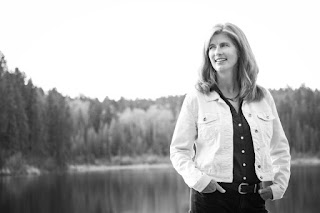I'm really happy to host author Andy Peloquin, particularly because, as a mystery/crime writer, I usually host authors in my genre. But it's great to break out of your norm and go for something completely different now and then! Andy's fantasy series is great, so I hope this will serve as a learning blog as well as an introduction to his work (or to the next book in the series for current fans).
Lament of the Fallen debuted two days ago, so you can pick it up NOW. Right here!
The Ins and Outs of Fantasy by Andy Peloquin
A lot of people don't understand the "fantasy"
genre. To many, the idea of fantasy brings to mind elves, dwarves, magic,
sorcerers, dragons, and all those other typical fantasy tropes found in books
like Lord of the Rings and The Song of Ice and Fire (Game of Thrones TV show).
But the genre of fantasy is actually much broader than that!
Most fantasy books don't involve those elements. Instead, they (as Wikipedia describes them)
"use magic or other supernatural elements as a main plot element,
theme, or setting."
There is really only one rule for a book to be classified as
fantasy: There has to be something fantastical, be it magic, magical/supernatural
creatures, or an alternate world.
Let's take a look at some of the different types of fantasy:
-
Urban
fantasy takes place in the modern world (usually a city), but with
fantastical elements mixed in. Harry
Potter is urban fantasy.
-
Epic fantasy
or high fantasy takes place on other worlds, ones with little or no
connection to Earth. Lord of the Rings is
epic fantasy.
-
Portal
fantasy involves people traveling from our Earth to an alternate
fantastical world. The Chronicles of
Narnia could be considered portal fantasy.
-
Dark
fantasy involves elements of horror (monsters, demons, serial killers,
etc.) in a fantasy world. Elric of
Melnibone is a dark fantasy series.
-
Historical
fantasy is historical fiction with fantastical elements mixed in. The Outlander series is historical fantasy.
These are the most common fantasy genres, though there are
many more (grimdark, sword and sorcery, heroic, juvenile, paranormal romance,
etc.).
The Last Bucelarii series is firmly set in the dark fantasy
genre, with elements of the grimdark sub-genre. The series involves demonic
creatures and other elements of horror, but it qualifies as grimdark due to the
amoral, violent, and gritty nature of the world in which the Hunter and the
other characters live.
For those who are used to more "classic" fantasy
genres (epic, heroic, sword and sorcery, etc.), delving into the dark world of
grimdark/dark fantasy may be a bit difficult. To go from shining heroes and
noble intentions to death, violence, treachery, murder, mayhem, and monsters
can take adjusting. But as you get into it, you'll find the gritty nature of
the books have a lot more in common with real life than you might think. If
you're anything like me, you'll be hooked in no time!
Thanks, Andy! I have a feeling I'll develop yet another obsession. Here's all about and how to get Andy's books (including book one if you haven't read it yet):
The Last Bucelarii
(Book 2): Lament of the Fallen
A faceless, nameless assassin. A forgotten past. The Hunter of Voramis--a killer devoid of
morals, or something else altogether? (The
Last Bucelarii--dark fantasy with a look at the underside of human nature)
The Hunter of Voramis
is no more.
Alone with the bloodthirsty voices in his head, fleeing the
pain of loss, he has one objective: travel north to find Her, the mystery woman who plagues his dreams and haunts his
memories.
When he stumbles upon a bandit attack, something within
urges him to help. His actions set him at odds with the warrior priests
commanded to hunt down the Bucelarii.
Left for dead, the Hunter must travel to Malandria to
recover his stolen birthright. There, he is inexorably drawn into direct
conflict with the Order of Midas, the faceless, nameless group of magicians
that holds the city in a grip of terror. All while struggling to silence the
ever-louder voice in his mind that drives him to kill.
From feared assassin to wretched outcast, the Hunter's
journey leads him to truths about his forgotten past and the Abiarazi he has
pledged to hunt. His discoveries will shed light on who he really is…what he really is.
Fans of Joe Abercrombie, Brandon Sanderson, and Brent Weeks will love the Hunter…
Ebook: https://www.amazon.com/Last-Bucelarii-Book-Lament-Fallen-ebook/dp/B01JJ5CKOU
Amazon Paperback: https://www.amazon.com/Last-Bucelarii-Book-Lament-Fallen/dp/1535388668/
Bio:
Andy Peloquin: Lover of All Things Dark and MysteriousContact: http://andypeloquin.com/books/


















